Interactive Group (IAC) Notes
11/17/2020 Update
- Good tweet thread on ANGI.
- Podcast interview with Boyar Value Group on IAC/ANGI
- https://www.youtube.com/watch?v=J2trsM41DTU&feature=youtu.be
- 0:00 – Intro
- 1:20 – Boyar Group Background
- 3:30 – 2008’s market versus 2020’s
- 6:10 – Why MSGS trades for less than its parts
- 18:30 – Why do value investors love IAC?
- 20:30 – ANGI bull case
- 36:20 – Why IAC is spinning Vimeo
- 42:50 – What IAC sees in MGM
- 47:45 – Plans for IAC’s huge cash balance
- 51:15 – Thoughts on IAC’s management and succession plan
- 54:05 – Thoughts on IAC’s other businesses
10/5/2020 Update
- Yet Another Value Blog had a couple good posts on IAC/ANGI. Here is post #1 and post #2.
- Here are my notes and thoughts:
- Marketplaces can look very expensive until they hit scale and then they look reasonable.
- IAC knows marketplaces and has had success incubating them and then spinning them off: MTCH, TREE, and EXPE.
- ANGI is not guaranteed to work out, but if it does and it gets its flywheel going, stock is going to be multiples higher.
- ANGI was formed when IAC owned Home Advisor merged with Angie’s List.
- Merger made sense: Angie’s List had a great brand name and significant traffic and Home Advisor had the largest network of Service Providers. So you combine the two and you get a marketplace that matches customers needing jobs done and service providers.
- Merger took place in 2013. At the time, ANGI mgmt guided that the combined company could generate $270MM in revenue by 2018 with 20% to 25% long term revenue growth and 35% EBITDA margins.
- Company has underperformed original expectations: 2019 EBITDA was $202MM and revenue has generally been mid teens.
- In fact, Home Advisor by itself expected to generate $1.6BN in revenue and $434MM my itself by 2020. So growth and margin profile has been very disappointing.
- Part of the reason margins have been disappointing is because ANGI has been investing in growth instead of maximizing profitability and jacking up its take rate. Nonetheless, the company’s performance has been disappointing.
- However, slow but steady progress has been made towards creating a virtuous flywheel.
- Metrics are heading in the right direction.

- ANGI wants to dominate local services.
- Need a plumber? Now you probably text a friend to get a recommendation or it its an emergency, you just google “plumber near me” However, this is incredibly inefficient. Would be much better to just open up an app and book a plumber.
- For ANGI, it’s much harder to create the marketplace flywheel because consumer can just go straight to the service provider after the initial job is complete for follow up tasks.
- ANGI’s flywheel is a lot harder to create than Uber’s was, but it provides ANGI with a better barrier to entry. If ANGI is able to achieve scale, no competitor will tempted to compete because its a grind.
- If ANGI were able to achieve scale, it would trade at a high multiple given barriers to entry. Here are some “marketplace companies” that we can use to frame ANGI’s potential valuation:

- Marketplaces trade between 10x (Ebay) and >100x (Zillow) depending on their maturity and industry conditions. 30x for ANGI would be reasonable.
- While Bloomberg says ANGI trades at 28x EBITDA, Andrew believes the company is under earning and is actually trading at a low single digit of normalized earnings. If ANGI is successful with its flywheel and gets rewarded with a normal marketplace multiple, a $60 stock price is possible.
- ANGI currently has <15% EBITDA margins, but has consistently said they think they can get their margins to over 35% over time. EBAY has 40% margins, Uber thinks Mobility can generate 45% margins, Booking was 40% in 2018 and 2019. So ~35% for ANGI seems fair.
- Trailing revenue is $1.4BN, with 35% EBITDA margins, implies $490MM of normalized EBITDA and that the stock is trading at 12x.
- Big part of margin expansion will be ANGI increasing its take rate. ANGI is currently depressing their take rate to get flywheel going. The way to get the flywheel going is to incentize both sides oft the marketplace (what Uber did). It’s expensive.
- As ANGI increases its take rate, profitability and revenue growth will improve.
- At scale, take rate could be as high as 20% (what ANGI is seeing in some mature fixed price markets), but that might be aggressive. Expensive things (like renting a room on Airbnb) tend to have lower take rates while inexpensive things (like food delivery) tend to have higher take rates.
- Andrew thinks a 15% take rate is reasonable.
- Here is the potential:
- Trailing revenue is $1.4BN. Let’s assume it grows for at 10% for three years so revenue becomes $1.863BN. Take rate goes from 10% (rough estimate) to 15%). So revenue increases from $1.863BN to $2.795BN. And EBITDA margin increases to 35% = EBITDA of $978MM. ANGI is trading at 6.0x this 2023 EBITDA estimate.
- Maybe this scenario doesn’t happen in 2023, but if it happens in the next 5 years, the stock is a home run.
- Insiders are incentivized
- For management to receive certain stock awards the company must generate $2.35BN in revenue in 2022 and $427.5MM in adjusted EBITDA, significantly higher than consensus ($2.1BN in revenue and $358MM in adjusted EBITDA).
- Also ANGI has bought back 15MM shares in the past year. This is notable because ANGI has a tiny float (IAC owns 85% of company).
- My concerns/thoughts:
- I don’t quite get the fixed price service offering.
- Think this would work for simple tasks like “unclog drain” but not for getting a quote to repair rotten trim.
- I recently requested a quote from Home Advisor to repair rotten trim. Two service providers came out to my house and gave me quotes. One was for $2,000 or was for $20,000. I tried to hire the $2,000 service provider but they never showed up so I went on Craigslist and was able to hire a carpenter that did the work for $1,800. Importantly, I didn’t know exactly what I needed until several service providers came to my house to inspect the damage
- Disintermediation
- Every once in a while I’ve used Handy (which is owned by ANGI) to book a cleaner for my houses. They do flash sales for $99 for a 3 hour clean which is a solid deal. One of the cleaners that they sent was excellent and so I got her number and just text her whenever I need the house cleaned, and we work out a mutually agreeable time. And she doesn’t have to split the payment with Handy. And possible doesn’t have to pay taxes (I write her a check).
- For her, I bet Handy is great to acquire new customers, but I imagine many of her customers do what I do and contact her directly after an initial appointment.
- Already have service providers.
- I’ve lived in my home for 4 years and have a carpenter, plumber, AC guy, and cleaner. I’m going to continue to use Handy and Home Advisor to see if I can get any value out of it.My questions/concerns with ANGI.Marketplace: Homer services vs. Uber
- The home marketplace marketplace is so hard because there are so many different types of tasks and many of them are one off items. And for the tasks that are repeatable (home cleaning), it’s very easy to disintermediate ANGI.
- With Uber, there is only one standardized task: drive me someplace. I could never work out a side deal with a single Uber driver to take me to the airport because he/she may not be working the next time I need him/her.
- Never bet agains IAC
- Even though I don’t have high conviction in the bull case for ANGI, I still think IAC is a phenomenal company with many shots on goal (I think Vimeo will be a monster when it is spun off).
- I don’t quite get the fixed price service offering.


Leave A Comment